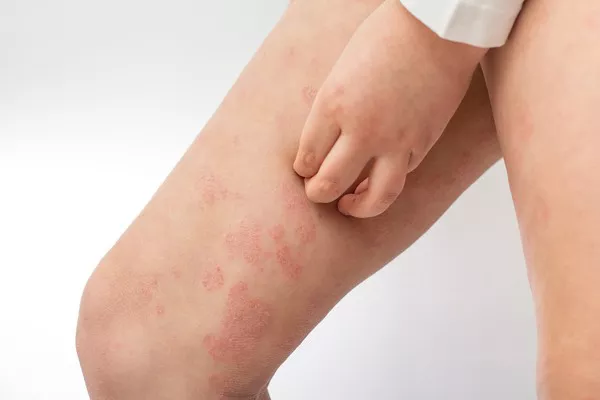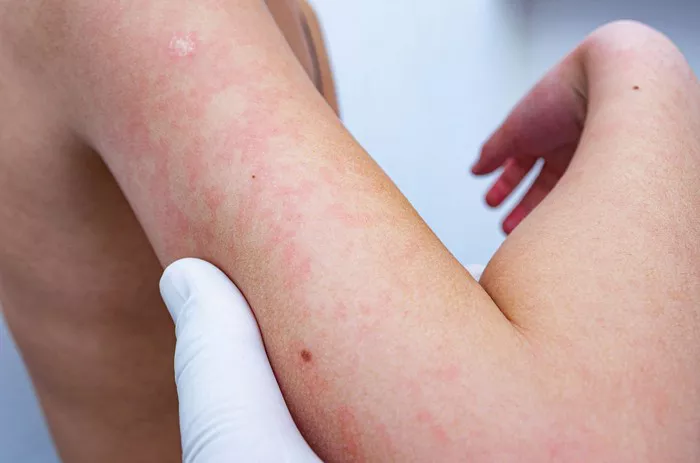Eczema, a chronic skin condition characterized by inflammation, itchiness, and redness, affects millions worldwide. While it may seem daunting to manage, understanding the triggers and implementing a holistic approach can significantly alleviate symptoms and promote skin healing. In this comprehensive guide, we delve into the intricacies of eczema management, focusing on strategies to heal damaged skin effectively.
Understanding Eczema:
Before delving into healing techniques, it’s crucial to grasp the fundamentals of eczema. This condition manifests differently in individuals, with common symptoms including dryness, itching, and flaking skin. Eczema can be triggered by various factors, including genetics, environmental irritants, allergens, and stress. Understanding one’s triggers is paramount to effective management.
Gentle Skincare Regimen:
A gentle skincare routine forms the cornerstone of eczema management. Opt for fragrance-free, hypoallergenic skincare products to minimize irritation. When cleansing, use lukewarm water and mild, non-soap cleansers to avoid stripping the skin of its natural oils. Pat the skin dry gently with a soft towel, avoiding vigorous rubbing which can exacerbate irritation.
Moisturization:
Moisturizing is vital for eczema-prone skin as it helps restore the skin barrier and lock in moisture. Choose thick, emollient-rich moisturizers containing ingredients like ceramides, hyaluronic acid, and shea butter. Apply moisturizer immediately after bathing to seal in moisture. For added benefit, consider applying a layer of moisturizer before bedtime to hydrate the skin overnight.
Avoiding Triggers:
Identifying and avoiding triggers is essential for managing eczema and promoting skin healing. Common triggers include certain fabrics (such as wool), harsh chemicals, extreme temperatures, and stress. Keep a journal to track flare-ups and identify patterns, then take proactive steps to minimize exposure to triggers.
Dietary Considerations:
While the link between diet and eczema is complex and varies from person to person, some individuals find relief by making dietary modifications. Consider incorporating anti-inflammatory foods such as fruits, vegetables, fish rich in omega-3 fatty acids, and probiotics. Conversely, avoid known trigger foods such as dairy, gluten, and processed foods, which may exacerbate inflammation.
Prescription Medications:
In cases of severe eczema or persistent flare-ups, prescription medications may be necessary. Topical corticosteroids are commonly prescribed to reduce inflammation and itching, while calcineurin inhibitors can help control flare-ups in sensitive areas like the face and groin. Oral medications, such as antihistamines or immunosuppressants, may be prescribed in severe cases.
Phototherapy:
Phototherapy, also known as light therapy, involves exposing the skin to ultraviolet (UV) light under medical supervision. This treatment can help reduce inflammation, itchiness, and the proliferation of skin cells. Phototherapy is often recommended for individuals with moderate to severe eczema who haven’t responded to other treatments or prefer to avoid systemic medications.
Stress Management:
Stress is a common trigger for eczema flare-ups, making stress management an integral part of eczema care. Explore relaxation techniques such as deep breathing, meditation, yoga, or tai chi to help alleviate stress. Additionally, prioritize self-care activities that promote relaxation and well-being.
Natural Remedies:
Several natural remedies may complement conventional eczema treatments and support skin healing. These include:
- Oatmeal baths: Adding colloidal oatmeal to bathwater can soothe irritated skin and relieve itching.
- Coconut oil: Applying virgin coconut oil to affected areas can provide moisturization and anti-inflammatory benefits.
- Aloe vera: The gel from the aloe vera plant has cooling and anti-inflammatory properties, making it soothing for eczema-prone skin.
- Probiotics: Some research suggests that probiotics may help modulate the immune system and improve eczema symptoms, although more studies are needed to confirm their efficacy.
Consistency and Patience:
Healing damaged skin from eczema is a journey that requires consistency and patience. Implementing a comprehensive skincare regimen, identifying triggers, and seeking appropriate medical treatment are key components of successful management. It’s essential to work closely with healthcare professionals to tailor a treatment plan that meets individual needs and achieves optimal outcomes.
Conclusion:
While eczema can pose challenges, effective management strategies can significantly improve symptoms and promote skin healing. By adopting a gentle skincare routine, avoiding triggers, incorporating healthy lifestyle habits, and seeking medical guidance when needed, individuals with eczema can reclaim control over their skin health and enjoy improved quality of life. Remember, healing is a gradual process, but with dedication and perseverance, relief and skin restoration are achievable goals.
Related Topics:



























